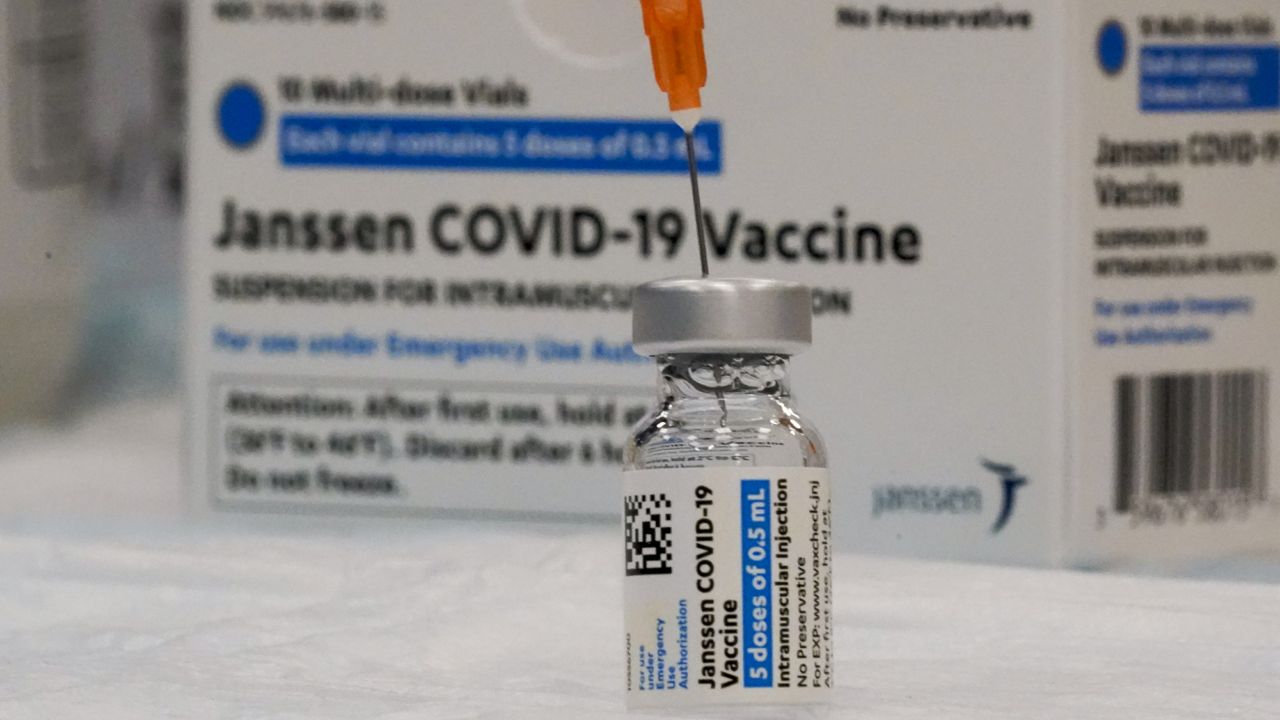Johnson & Johnson will cut deliveries of its single-dose coronavirus vaccine by nearly 80% next week, according to data published on the CDC website on Friday.
On the week of April 5, the pharmaceutical company sent out nearly 5 million vaccine doses across the country. But on the week of April 12, that number will drop to only 700,000 — its third-lowest weekly dosage shipment since the company received emergency use authorization for its COVID vaccine candidate in late February.
Johnson & Johnson’s first nationwide shipment on March 1 contained upwards of 2.8 million doses; the remaining three weeks in March saw shipments of 493,700 doses, 389,900 doses, and 1.9 million doses, respectively.
White House coronavirus response coordinator Jeff Zients has repeatedly told states to expect varied shipment amounts from the company on a week-to-week basis, emphasizing during Friday’s coronavirus response briefing that Johnson & Johnson is “obviously earlier in their manufacturing process” than either of its competitors in the U.S., Pfizer and Moderna.
“They're not in the weekly cadence, regular cadence that Moderna and Pfizer have both achieved,” Zients said. Pfizer-BioNTech was the first company to receive emergency authorization for its coronavirus vaccine in December of last year; Moderna’s was given the same approval later the same month.
Moderna and Pfizer have separately pledged to ship nearly 300 million vaccine doses across the country by July.
Manufacturing problems have plagued Johnson & Johnson for weeks. In late March, the company revealed that Emergent BioSolutions — one of about 10 plants that Johnson & Johnson is using to speed up manufacturing of its vaccine — did not meet quality standards, forcing the company to discard 15 million doses of its coronavirus vaccine.
Johnson & Johnson says the botched batch will not impact its ability to deliver the 100 million vaccine doses promised by the end of May. But officials said Friday that states should continue to expect continued “fluctuation” in shipments until the Baltimore-area plant is “able to get through the FDA process” and reopen.
“We do expect, week to week, lower levels until the plant is approved by the FDA, and those conversations are between J&J and the FDA,” Zients said Friday. “I do think that the company is doing everything they can … They now have complete responsibility for that whole facility. They have their best people at that plant.”
Once the facility receives FDA approval, Johnson & Johnson will likely be able to ship out vaccines at an 8-million-per-week cadence, Zients added.
But the lowered supply for next week is already forcing some states to shift their plans on how to administer vaccines.
Officials in Connecticut recently learned that their expected shipment of 20,000 J&J doses next week will drop to 6,000 and then down to 2,000 the following week. Now, lawmakers must revamp some distribution plans, including at college campuses before students leave for the summer break.
Josh Geballe, chief operating officer for Gov. Ned Lamont, said Connecticut had originally planned on giving college students the opportunity to get the one-dose vaccine, realizing there wouldn’t be enough time to administer them a second dose of the vaccines manufactured by Pfizer and Moderna.
“Yes, the plan will have to change,” said Geballe, explaining how the state now plans to give students at least the first dose of Pfizer or Moderna while they’re in Connecticut and then have the students get their second dose in their home state.
In neighboring New York, Gov. Andrew Cuomo said those who already have appointments to get the Johnson & Johnson vaccine will likely not be impacted by the decreased shipments.
New York is facing an 88% reduction in its Johnson & Johnson supply next week, Cuomo said.
The Associated Press contributed to this report.



